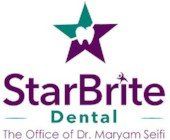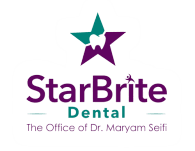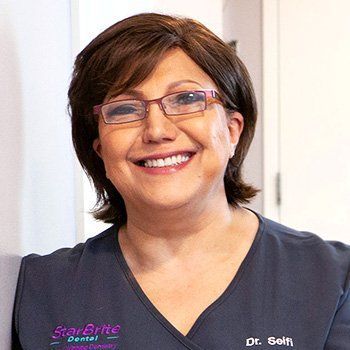Surgical Tooth Extractions in Rockville, MD
Tooth Extraction Options: Simple and Surgical Explained
Having any tooth removed may seem like surgery to you as a patient. We get that. But there are actually two types of tooth extractions: simple and surgical. In a simple extraction, the tooth is easy to access using dental instruments that allow your dentist to lift the tooth and manipulate it until it comes out.
No, we don’t just “pull” teeth like the barbers in old western movies. Our dentists are masters of extraction techniques, with what we feel are the deftest touches in the business.
Surgical extractions happen when things aren’t so simple, when a tooth isn’t easy to access or presents other challenges (e.g., fractured teeth, hooked roots, multiple roots, severely infected teeth). In those non-simple circumstances, more invasive methods need to be used, such as incisions of the gum. In some cases, it may be necessary for some jawbone tissue to be removed (e.g., if it has become too thick and interferes with access to the tooth).
Featured Video: An Introduction to Tooth Extractions
Let’s use a familiar example: wisdom teeth. Upper and lower wisdom teeth extractions are the most common type of surgical extraction, given their deep position in the mouth and the fairly frequent occurrence of them being impacted and not fully erupted through the gums. In addition, upper wisdom teeth need careful attention given their proximity to the wall of the sinus cavity; lower wisdom teeth require caution due to proximity with important nerves.
Of course, it’s not just wisdom teeth that require surgical precision and procedures. The necessity for surgical extraction can be found anywhere in the mouth:
- In certain instances, the periodontal ligaments attaching a tooth to the jawbone need to be disconnected, using an instrument called a periotome.
- Sometime the best course of action may be cutting a tooth into sections to remove it in the most efficient and patient-friendly way; such a procedure can require cutting into the gum in order to get access to the roots.
- A simple extraction can become a surgical extraction if a weakened tooth breaks during removal, leaving a portion of the tooth, along with the roots, below the gum line.
There are many reasons why a surgical extraction may be needed, and your StarBrite dentist will never recommend one without a thorough evaluation of your situation and an in-depth discussion of the specifics of the procedure being recommended. In surgical extractions, as in everything else regarding your dental and oral health, our approach to treating you is to act as your partner in treatment, not just your provider.
What Patients Are Saying About StarBrite Dental
At many dental practices, the need for a surgical extraction would be met by referring you to a specialist—someone you don’t know, a staff that doesn’t know you and a location that may take you well out of your way. Here at StarBrite Dental, we have all the surgical extraction expertise you need right under our roof; you’ll never have to worry about being referred out to an unfamiliar practice. You trust us with your dental and oral health, which we believe makes it our duty to be sure we can care for any and all of your needs
And of course, your comfort both during and after a surgical extraction procedure is high on our priority list.
Frequently Asked Questions About Tooth Extractions
Contact Us to Schedule an Appointment Today!
*We DO NOT ACCEPT HMO Insurance, State Insurance, Medicaid/Medicare, or discount plans. Fees apply for services. and same-day appts/emergencies.
Evening and Weekend Hours Available
- Monday
- Closed
- Tuesday
- -
- Wed, Fri
- -
- Thursday
- -
- Saturday
- -
- Sunday
- Closed
Office
(301) 770-1070
Fax (301) 770-0544
5936 Hubbard Dr, Rockville, MD 20852


